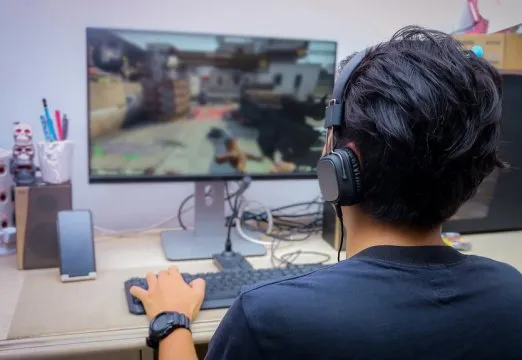
Researchers at the University of York have found no evidence to support the theory that video games make players more violent.
In a progression of tests, with more than 3,000 members, the group showed that computer game ideas don't 'prime' players to carry on in certain ways and that expanding the authenticity of vicious computer games does not really build hostility in amusement players.
The prevailing model of learning in amusements is based on the possibility that presenting players to ideas, for example, savagery in a diversion, makes those ideas simpler to use, 'in actuality'.
This is known as 'preparing', and is thought to prompt changes in conduct. Past trials on this impact, be that as it may, have so far given blended conclusions.
Specialists at the College of York extended the quantity of members in tests, contrasted with contemplates that had gone before it, and contrasted distinctive sorts of gaming authenticity with investigate whether more convincing confirmation could be found.
In one examination, members played a diversion where they needed to either be an auto staying away from impacts with trucks or a mouse abstaining from being gotten by a feline. Following the diversion, the players were indicated different pictures, for example, a transport or a pooch, and requested to name them as either a vehicle or a creature.
Dr David Zendle, from the College's Division of Software engineering, stated: "If players are 'prepared' through drenching themselves in the ideas of the diversion, they ought to have the capacity to classify the items related with this amusement all the more rapidly in reality once the diversion had finished up.
"Over the two recreations we didn't observe this to be the situation. Members who played an auto themed amusement were no speedier at ordering vehicle pictures, and in fact now and again their response time was fundamentally slower."
In a different, yet associated examination, the group researched whether authenticity affected the animosity of amusement players. Research in the past has recommended that the more noteworthy the authenticity of the amusement the more prepared players are by vicious ideas, prompting introverted impacts in reality.
Dr Zendle stated: "There are a few tests taking a gander at realistic authenticity in computer games, yet they have returned blended outcomes. There are, in any case, different ways that savage amusements can be practical, other than resembling 'this present reality, for example, the way characters carry on for instance.
"Our test took a gander at the utilization of 'ragdoll material science's in amusement outline, which makes characters that move and respond similarly that they would, in actuality. Human characters are displayed on the development of the human skeleton and how that skeleton would fall in the event that it was harmed."
The examination contrasted player responses with two battle amusements, one that utilized 'ragdoll material science's to make practical character conduct and one that did not, in an enlivened world that by and by looked genuine.
Following the amusement the players were requested to finish word confounds called 'word section fruition assignments', where analysts expected more rough word affiliations would be decided for the individuals who played the diversion that utilized more reasonable practices.
They contrasted the aftereffects of this investigation and another trial of amusement authenticity, where a solitary bespoke war diversion was altered to frame two unique recreations. In one of these recreations, foe characters utilized reasonable fighter practices, while in the other diversion they didn't utilize sensible officer conduct.
Dr Zendle stated: "We found that the preparing of savage ideas, as estimated by what number of rough ideas showed up in the word part culmination assignment, was not distinguishable. There was no distinction in preparing between the diversion that utilized 'ragdoll material science's and the amusement that didn't, and also no critical contrast between the recreations that utilized 'genuine' and 'unbelievable' solider strategies.
"The discoveries propose that there is no connection between these sorts of authenticity in recreations and the sort of impacts that computer games are regularly thought to have on their players.
"Additionally consider is presently required into different parts of authenticity to check whether this has a similar outcome. What happens when we think about the authenticity of by-standing characters in the amusement, for instance, and the consideration of extraordinary substance, for example, torment?
"We likewise just tried these hypotheses on grown-ups, so more work is expected to comprehend whether an alternate impact is clear in kids players."